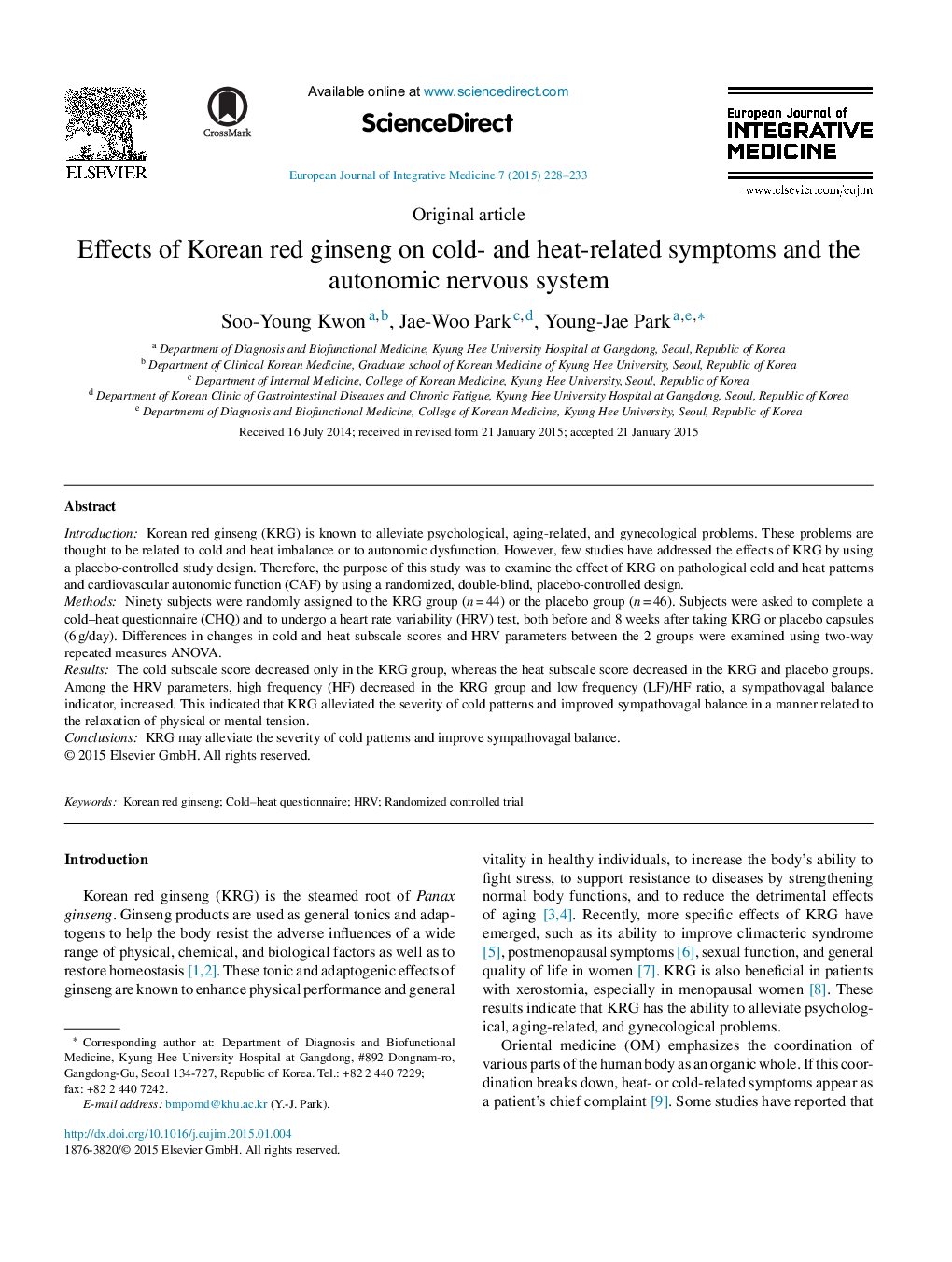| Article ID | Journal | Published Year | Pages | File Type |
|---|---|---|---|---|
| 2479659 | European Journal of Integrative Medicine | 2015 | 6 Pages |
IntroductionKorean red ginseng (KRG) is known to alleviate psychological, aging-related, and gynecological problems. These problems are thought to be related to cold and heat imbalance or to autonomic dysfunction. However, few studies have addressed the effects of KRG by using a placebo-controlled study design. Therefore, the purpose of this study was to examine the effect of KRG on pathological cold and heat patterns and cardiovascular autonomic function (CAF) by using a randomized, double-blind, placebo-controlled design.MethodsNinety subjects were randomly assigned to the KRG group (n = 44) or the placebo group (n = 46). Subjects were asked to complete a cold–heat questionnaire (CHQ) and to undergo a heart rate variability (HRV) test, both before and 8 weeks after taking KRG or placebo capsules (6 g/day). Differences in changes in cold and heat subscale scores and HRV parameters between the 2 groups were examined using two-way repeated measures ANOVA.ResultsThe cold subscale score decreased only in the KRG group, whereas the heat subscale score decreased in the KRG and placebo groups. Among the HRV parameters, high frequency (HF) decreased in the KRG group and low frequency (LF)/HF ratio, a sympathovagal balance indicator, increased. This indicated that KRG alleviated the severity of cold patterns and improved sympathovagal balance in a manner related to the relaxation of physical or mental tension.ConclusionsKRG may alleviate the severity of cold patterns and improve sympathovagal balance.
